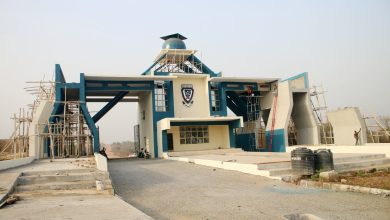List of Cheapest School of Nursing in Dr Congo and Their Fees
Do you want to enroll in the cheapest school of nursing in Dr Congo but you don’t know which school to enroll? How about understanding the necessary fees for enrollment in the school? You can use the information in this article to learn about the list of cheapest school of nursing in Dr Congo

List of Cheapest School of Nursing in Dr Congo
1. Kinshasa University of Nursing Sciences
The Kinshasa University of Nursing Sciences is the oldest and most prestigious nursing school in the DRC. Tuition costs only about $500 per year. The school offers bachelor’s and master’s degrees in nursing. Graduates have a strong reputation in the healthcare field in the DRC and many go on to hold leadership positions in hospitals and health organizations.
2. Institut Supérieur des Techniques Médicales
Institut Supérieur des Techniques Médicales, located in Lubumbashi, is an affordable option for nursing education in the southern part of the DRC. Tuition is around $350 per year. The school offers bachelor’s degrees in general nursing and midwifery. Graduates are qualified to work as registered nurses in hospitals and health centers across the region.
3. University of Goma School of Nursing
The University of Goma in eastern DRC has a well-regarded School of Nursing. Tuition costs approximately $450 per year. The school offers bachelor’s and master’s degrees in nursing, including specializations in areas like critical care, pediatric, and community health nursing. Students get hands-on experience through clinical placements at local hospitals and health organizations.
In summary, there are a number of low-cost, high-quality nursing schools in the DRC to choose from. While resources are limited, dedicated students can obtain a nursing education for under $500 per year at schools like the Kinshasa University of Nursing Sciences, Institut Supérieur des Techniques Médicales, and the University of Goma School of Nursing. After graduation, nurses in the DRC go on to provide vital healthcare services across this vast country.
FAQs
How much does nursing school cost in the DRC?
Nursing education in the DRC can vary in cost depending on the school and program. Public nursing schools, like the University of Kinshasa, typically charge less than private schools. Students can expect to pay between $200 to $500 per year for a nursing diploma or degree at a public school. Private nursing schools may charge $500 to $2,000 per year or higher, especially for bachelor’s degrees.
Are scholarships and financial aid available for nursing students?
Yes, there are scholarships and aid programs available for nursing students in the DRC. The Ministry of Health offers scholarships and bursaries for students pursuing nursing degrees and diplomas. Private organizations like the Ford Foundation and Mastercard Foundation also offer scholarships for nursing and health sciences students from disadvantaged backgrounds. Students should apply for all scholarships and aid for which they may be eligible to help fund their nursing education.
What is the admission process for nursing schools in the DRC?
The admission process for nursing schools in the DRC typically involves meeting the following requirements:
- Completing secondary school with passing grades in science and math subjects
- Achieving the minimum required score on the national higher education entrance exam
- Submitting an application, including transcripts, exam scores, an essay, and letters of recommendation
- Interviewing with the school of nursing, if required
- Meeting health requirements like vaccinations and medical exams
- Gaining acceptance and enrolling in the nursing program
The specific application deadlines, documents needed, and admission criteria will vary between different schools. Students should inquire with their target schools for the details of their admission process.
What degree or diploma programs are offered for nursing in the DRC?
Nursing education programs in the DRC include:
- Nursing diplomas: 2-3 years. Prepares students for basic nursing roles.
- Associate degrees in nursing: 2-3 years. Broad introduction to nursing concepts and skills. Graduates qualify as registered nurses.
- Bachelor of Science in Nursing: 4 years. In-depth nursing education. BSN graduates have more career opportunities and higher pay.
- Graduate nursing degrees: For students interested in advanced nursing roles like nurse practitioner, clinical nurse specialist, or nurse midwife. Usually requires 1-2 years of additional study after earning a BSN.
The availability of specific nursing programs depends on the schools in each region. In areas with limited access to higher education, diploma and associate degree programs are more common. Where universities are present, BSN and graduate nursing degrees are also offered.
READ ALSO: List of Cheapest School of Nursing in Niger Republic









